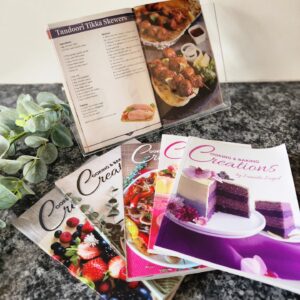Author Shubnum Khan’s latest work – a collection of her memoirs – is a delightful read, says Na’eem Jeenah*, who reviewed the book.
Despite a ridiculously long and unwieldy title, Shubnum Khan’s “How I accidentally became a global stock photo and other strange and wonderful stories” is a delightful and (mostly) hilarious collection of stories about growing up Muslim and woman in Durban, and travelling the world to escape the sense of being trapped in that existence. The book is a compilation of carefully-selected memoirs, organised chronologically from birth.
When I first saw the title, I wondered who was so strangely possessed to give the book such a long name. It’s not quite as long as Vityala Yethindra’s 3,777-word book title, but the publishers could at least have left out the longest word – ‘accidentally’ – and not have lost anything (except a big word), I thought. After all, 14 words is not a title; it’s a paragraph. But half way through the book, I realised that ‘accidentally’ is actually a critical word in the title, because most of the author’s adventures, escapades and encounters do seem quite ‘accidental’.
Whether the encounter with a djinn under a pear tree on a mountain in Kashmir, or being trapped in a hotel room in Delhi after an earthquake, or being accused of being married by suspicious Canadian officials, or being made to dress up as a bride in Shanghai, or getting invited to an upper-class party in New York City, or comforting a crying woman in Fez… all accidents. All incidents that justified the ‘accidentally’ in the title.
(Unless, of course, like me, you do not believe in accidents.)
No one will have to open the book to know that it is a quirky narrative of the author’s life. One confronts quirkiness with the picture on the cover, which is a good indication of what to expect: a fun, exciting read about the real-life adventures of a Durban Muslim woman. It’s a book that will appeal to any age group from teenagers upwards.
(Unless, of course, you are the kind of person who thinks that the ruminations of a single Muslim woman about her weird and wonderful travels around the world – alone, meeting strange people and having glorious adventures will somehow mislead your daughter or sister. If that’s how you feel, don’t buy the book. It is guaranteed to upset you. A lot.)
Character
It’s honest and open, and hysterically funny in parts. Khan skillfully writes in the style and form of the age of her main character (herself). The writing, thus, matures with the character, giving the reader the feeling that s/he is growing/ageing with the author and sharing her anxieties, joys, frustrations, triumphs, concerns and blessings. And lest it sounds like it’s all just comedy (and despite a blurb by Riaad Moosa), the book does get extremely serious in parts; but even then, its humour occasionally and refreshingly breaks the surface. As the character gets older, the depth of the book too increases, with ever more profound questions being asked – either directly, or indirectly through her unfolding life story.
I confess to even shedding a tear or two on a few occasions, as when I read this passage about Khan getting lost in Seoul: ‘At one point on the top of a hill, I was panting and I… saw an entrance with Arabic writing and I realised it was a mosque. I stopped and stared in amazement… I missed my community and my people and the sense of belonging it brought. I didn’t realise what a hole there was inside me until I saw the mosque. Immediately, I drew up my scarf and went inside. In the dusty women’s section on the third floor, I put my head down to pray and closed my eyes. And without understanding why, I started to cry…
‘[T]o have a place where you can go when your heart is heavy, when you need to collapse, a place made just for your relationship with your creator, a place where you feel safe, is one of the most important things you can give a woman.
‘I sat in the mosque and cried. I cried because I was alone, because I was amazed by everything, because I still had so much love to give, because I had people who loved me so much, because life had not gone according to plan, because I was scared, because I had forgotten God, because God had remembered me…
‘I thought I had found the mosque that day but when I left I knew the mosque had found me.’
Apart from the power of this passage (especially coming from a woman who is largely deprived of such joys in her hometown), it’s also indicative of Khan’s unapologetic and matter-of-fact articulation of her Muslim identity and practice, showing how her Islam influences her decisions, fears and joys, securities and insecurities. For example, when she expresses her difficulties with flying, and includes the discomfort/difficulty of being (un)able to pray her five salawat. Or her mention, during certain scary episodes, of how she would recite Ayatul Kursi for calmness and protection.
Conservative
Identity is an important part of the book and her story. There are repeated references to her as a ‘single Indian Muslim woman’. But travelling makes the author realise that her identity is, in fact, more complex and expansive than that she had felt in her conservative and ‘stuck’ Durban life, and her self-description changes to ‘South African’ and then to ‘African’.
Readers from different parts of the world have commented that they found the book ‘relatable’. I certainly can understand why. It might, however, be slightly less relatable (though not less readable or less enjoyable) for Muslim men, who are not pressured into marriage (because they are not women), not prevented from travelling (because they are not women), or not part of a conservative community where women’s daily lives are constantly policed.
I sincerely recommend this book. Buy it! Two copies. One as an Eid gift to yourself and one for someone you love.
*Na’eem Jeenah is an author and the Executive Director of the Afro-Middle East Centre.


